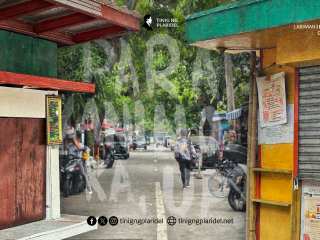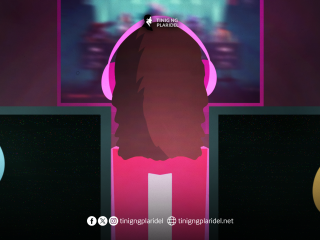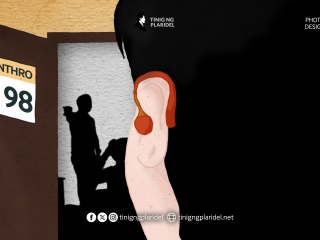by Beatriz Zamora
Despite the promise of affordable education in a state university like the University of the Philippines, the value of its students’ schooling falls under the judgment of a few questions and a single letter.
Questions on the number of television sets or the type of toilet bowls comprise UP’s Socialized Tuition System (STS), a scheme determining tuition by classifying them under discount brackets based on an online survey indicating their economic status.
On the day of the release of the ST application results, Journalism shiftee Lucia Silva’s life fell at the mercy of a single letter: B.
Having been classified as such, she is required to pay P1,000 per unit, a luxury that cannot be afforded by her policeman father and teacher mother who are at present, sending five children to school.
Despite the uncertainty, Silva placed her faith in the results of her appeal for a lower bracket.
“As of now wala pa akong ibang magawa kundi umasa sa appeal na sana mapababa yung bracket ko,” she said. “Naghahanap din ako ngayon ng mga posibleng scholarships actually.”
Silva is but one of the many students burdened by STS and the ironically inaccessible education in UP.
According to Basic Student Services (BSS) Committee Head Donn Bernal, around 500 students requested for a third batch of STS applications while 200 students, excluding those who texted the BSS Committee, expressed grievances towards the application results.
Since its implementation in 2014, the scheme has sparked debates among UP students on whether or not it should be scrapped or reformed. Last week’s results of the second round of the ST applications reignited social media outrage and fueled debates on the issue with the nationwide trending hashtags of #StresSTS and #JunkSTS carrying students’ aversion towards the tuition system.
A common problem arising in the tuition system is misbracketing, a phenomenon evident in the case of Silva.
In the previous academic year, the journalism shiftee received 80 percent tuition discount from the university due to her classification as Bracket D, which is two brackets away from her current classification.
“Hindi na-consider na sobrang magkaiba ang gross and net income ng pamilya,” she expressed. “Malaki ang epekto nito sa overall na dynamics ng mga gastusin sa bahay,”
Besides being budgeted for the education of the family’s five children, Silva added that a huge sum from her parents’ income are also allotted to paying their debts.
She also acknowledges that pursuing her studies far from her hometown also entitles her family to more expenses. Hailing from Iligan City, Northern Mindanao has put Silva in a place of utmost reliance on dormitories during nearly two years of stay in the university. With airfare amounting to P8, 000 at the most, she also limits her home visits to only once a year.
However, due to her bracket assignment, Silva was only waitlisted for a dormitory slot for the next academic year. Dormitory slots are determined through point-system based on the STS bracket and place of origin.
“Ang taas ng points ko sana diba? Pero gumuho talaga yung mundo ko nung nalaman ko na waitlisted lang ako. I mean, for someone like me na ‘di nga umuuwi ng Mindanao, ang dorm ang buhay ko,” she said.
Even before this, however, Silva had already practiced a life of frugality and independence in UP. Aside from cutting back on home trips, meals of siomai rice worth 40 pesos are what she relied on to minimize expenses. She described that having company who also cut back on spending helps her situation.
For Silva, this way of living is nothing short of usual.
“Pero syempre dapat hindi tayo nagiging oblivious sa mga ganitong pangyayari dahil karapatan natin (ang mga)’to na dapat tinatamasa na natin in the first place,” she said.
Besides Silva, incoming journalism senior Christian Venus is also burdened with the ST application results.
Venus encountered a change in bracket in the recent results despite giving out the same answers in his ST application last year where he was classified as Bracket B after an appeal.
This year, Venus was assigned to Bracket A, garnering no tuition discounts for the incoming academic year. The results of his appeal letter are still pending as of press time.
While acknowledging the fact that his current socioeconomic status could pay tuition with no discount, he believes that Bracket B would be more appropriate for him given his mother’s unemployment status. Venus has been consistently appealing for a lower bracket since STS’ implementation.
“I just thought parang hindi enough itong form for them to make an accurate decision kung anong bracket ko dapat,” he stated.
Meanwhile, Officer-in-Charge Neil Jamandre of the Office of Scholarships and Student Services (OSSS) explained that the OSSS are planning reforms on STS. Initiated by the Diliman Committee on Scholarships and Financial Assistance (DCSFA), he claimed these reforms are grounded on the previous University Student Council’s (USC) study on the tuition scheme.
Jamandre further explained that the OSSS is finalizing the proposal for ST Audit to be submitted to the University Committee on Student Affairs (UCSA). This newly formed committee consists of all student affairs directors of the university’s constituent universities, the student regent and all councils.
He said that the ST Audit is necessary due to past experiences in which household income and characterizes in ST applications were noticeably different.
“We therefore refer or may refer fraudulent cases na sa tingin naming kailangan tignan ng student disciplinary council,” Jamandre said.
For some, however, reforming STS does not guarantee students their inviolable right to education.
The College of Mass Communication Student Council (CMCSC), for instance, recognizes STS as a profiteering scheme implemented by the university and calls for the scrapping of the program.
CMCSC Students Rights and Welfare (STRAW) committee head Jesse Doctor said that to forward the concerns of their constituents such as Silva and Venus, the council initiated a dialogue with the college administration last June 12. They also coordinated with the University Student Council (USC) in calling for a third round of ST applications and released a statement echoing the USC’s call to junk STS.
“So di lang sya matatapos sa pag address ng concern bagkus ay yung tireless na magpapaliwanag kung ano nga ba ang STS at yung pagcall sa students na sumama sa laban o paglaban against all profiteering schemes sa loob at labas ng ating pamantasan,” Doctor said.
Meanwhile, Bernal said the USC initiative to collect student feedback was met with many students’ intentions to apply for leave of absence (LOA) and student loans. He also mentioned that the BSS holds yearlong discussions on the educational system of UP, including STS.
In the DCSFA meeting earlier, the USC presented their stand to give all students tuition discount with stipend in accordance with the status of education as a right.
“Sinalubong kami ng pagsalungat mula sa mga miyembro ng komite ngunit nanatili kaming matatag kasabay ng mga kapwa iskolar na tumutol sa ST System sa bukana ng Bulwagang Vinzons,” Bernal said.
With two years of experience in OSSS, Jamandre said that dealing with grievances against STS—particularly, the call to scrap the program—is part of the job.
“Isang bago with STS is the social media aspect of it so relatively speaking, hindi naman ako in particular obliged to respond to those hashtags,” he said, recalling another time in which STS sparked online outrage in 2014.
In terms of accommodating students’ different proposals on STS, Jamandre assured that the study on the system’s inefficiencies are still ongoing.
“Definitely ongoing pa rin yung study on how improve, reform–will it be a basis for scrapping the program? Depende na ‘yun kung sinong may call for that,” he said.
Despite the debate to either scrap or reform the STS, the bigger and more urgent demand to provide education the Filipino masses deserve remains a prominent concern with the persistence of situations of students like Silva and Venus, who have become testaments to the growing problem of inaccessible education in the Philippines.
From the high price of tertiary level education to the lack of facilities in schools across the nation, the Constitutional guarantee of education as a right is yet to be put into practice.
In a university such as UP, a university fondly marked as an educational institution for the poor, present conditions ironically contradict with its nationalistic ideals, presenting education as a privilege served on a silver platter to those who can afford it.
Meanwhile, Bernal said the USC will do its best to cater to the needs of students like Silva and Venus, especially when it comes to issues dealing with tuition and OSFs.
“Pinakamalaki pa ring balakid ang kakulangan ng access ng mga pangungunahing pangangailangan sa edukasyon dahil sa komersalisadong oryentasyon nito,” he said.
“Bagamat nandito ang BSS buong taon, kinakailangan pa rin ang lakas ng bawat estudyante upang maparating ang ating panawagan para sa mas makamasang edukasyon.” #
(with Andrea Jobelle Adan and Gabriel Sante)









